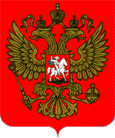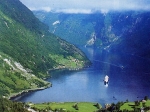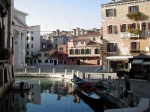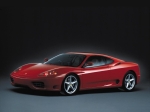
 The Russian Federation, or Russia , is a country that stretches over a vast expanse of eastern Europe and northern Asia . With an area of 17,075,400 km² (6,595,600 mi²), it is the largest country in the world, covering almost twice the territory of the next-largest nation, Canada . It ranks seventh in the world in population, following China , India , the United States , Indonesia , Brazil , and Pakistan .
The Russian Federation, or Russia , is a country that stretches over a vast expanse of eastern Europe and northern Asia . With an area of 17,075,400 km² (6,595,600 mi²), it is the largest country in the world, covering almost twice the territory of the next-largest nation, Canada . It ranks seventh in the world in population, following China , India , the United States , Indonesia , Brazil , and Pakistan .
Once the preeminent republic of the Union of Soviet Socialist Republics (USSR), Russia has been an independent country since the dissolution of the union in December 1991 . Under the Soviet system it was called the Russian Soviet Federated Socialist Republic (RSFSR).
Most of the area, population, and industrial production of the Soviet Union , then one of the world's two superpowers , lay in Russia. Consequently, after the breakup of the USSR, Russia again vied for an influential role on the world stage. This influence is notable, but is still far from that of the former Soviet Union.
The Russian Federation stretches across much of the north of the supercontinent of Eurasia . Although it contains a large share of the world's Arctic and sub-Arctic areas, and therefore has less population, economic activity, and physical variety per unit area than most countries, the great area south of these still accommodates a great variety of landscapes and climates . Most of the land consists of vast plains, both in the European part and the Asian part that is largely known as Siberia . These plains are predominantly steppe to the south and heavily forested to the north, with tundra along the northern coast. Mountain ranges are found along the southern borders, such as the Caucasus (containing Mount Elbrus , Russia's and Europe's highest point at 5,633 m) and the Altai , and in the eastern parts, such as the Verkhoyansk Range or the volcanoes on Kamchatka . The more central Ural Mountains , a north-south range that form the primary divide between Europe and Asia, are also notable.
Russia has an extensive coastline of over 37,000 km along the Arctic and Pacific Oceans , as well as more or less inland seas such as the Baltic , Black and Caspian seas. Some smaller bodies of water are part of the open oceans; the Barents Sea , White Sea , Kara Sea , Laptev Sea and East Siberian Sea are part of the Arctic, whereas the Bering Sea , Sea of Okhotsk and the Sea of Japan belong to the Pacific Ocean. Major islands found in them include Novaya Zemlya , the Franz-Josef Land , the New Siberian Islands , Wrangel Island , the Kuril Islands and Sakhalin .
Many rivers flow across Russia. See Rivers of Russia .
Major lakes include Lake Baikal , Lake Ladoga and Lake Onega . See List of lakes in Russia .
Economy
More than a decade after the collapse of the Soviet Union in 1991 , Russia is trying its best to establish a modern market economy and achieve strong economic growth. Russia saw its economy contract severely for five years, as the executive and legislature dithered over the implementation of reforms and Russia's industrial base faced a serious decline. Moreover, an emergency livestock shortage in 1987, which triggered large-scale international support, severely bruised the ego as well as the economy of the burgeoning Russian state.
But however inefficient in terms of free market and consumer tastes the former Soviet economy was, Russian people in general after mid50-s lived much better than the citizens of long market-oriented and capitalistic Mexico, Brazil, India or Argentina.
Illiteracy rate was virtually zero, higher education very good and affordable, unemployment was practically non-existent, gender equality one of the most remarkable in the world with females sometimes advancing further than males in their pursuit of careers, especially in science. Many families owned cars, TV's, tape-recorders, could afford travelling by plane at least once a year to the famous seaside resorts.
Nevertheless, the assortment of consumer goods (in particular cloths and food) was relatively primitive and the shortage of housing very pronounced in many of the urban areas although poor sanitation slums were rare.
After the break-up of the USSR, that was caused more by ethno-racial than economic reasons, Russia's first slight recovery showing the signs of open-market influence occurred in 1997 , but that year's Asian financial crisis culminated in the August depreciation of the ruble in 1998 , a debt default by the government, and a sharp deterioration in living standards for most of the population. 1998 was consequently marked by recession and intense capital-flight.
However, the economy mildly recovered in 1999. Then it has entered a phase of rapid expansion, its GDP growing by an average of 6.8% annually in 1999 - 2004 on the back of higher oil prices, weaker ruble, increasing service production and industrial output.
This recovery, along with a renewed government effort in 2000 and 2001 to advance lagging structural reforms, have raised business and investor confidence over Russia's prospects in its second decade of transition. Russia remains heavily dependent on exports of commodities, particularly oil, natural gas , metals, and timber , which account for over 80% of exports, leaving the country vulnerable to swings in world prices. In recent years, however, the economy was also driven by growing internal consumer demand that has increased by over 12% annually in 2000-2004, showing the strengthening of its own internal market.
Country's GDP has shot up to reach $1.5 trillion dollars in 2004, that made it eleventh largest single economy in the world and fifth largest in Europe, closely following that of Italy ($1.6), France (1.7) and Britain (1.7). Probably within 3 years assuming that the 6% rate of growth persists the country is estimated to become second largest European economy after Germany ($2.3) and eighth largest in the world. The country's capital region of Moscow contributes 30% to the country's GDP.
The greatest challenge facing the Russian economy is how to encourage the development of SME (small and medium sized enterprises) in a business climate dominated by Russian oligarchs and having a young and dysfunctional banking system. Many of Russia's banks are owned by entrepreneurs or oligarchs, who often use the deposits to lend to their own businesses.
The European Bank for Reconstruction and Development and the World Bank have attempted to kick-start normal banking practices by making equity and debt investments in a number of banks, but with very limited success.
Other problems include disproportional economic development of Russia's own regions. While the huge 20-million capital region of Moscow is a bustling affluent metropolis living on the cutting-edge technology with the per capita income rapidly approaching that of the leading Eurozone economies, the rest of the country especially its indigenous and rural communities in Asia live like in the late Middle Ages. Market integration is nontheless making itself felt in some other more or less large cities such as Saint Petersburg, Kaliningrad, Ekaterinburg.
Encouraging foreign investment is also a major challenge. So far the country is benefiting from rising oil prices and has been able to pay off much of its formerly huge debt. Equal redistribution of capital gains from the natural resource industries to other sectors is also a problem. Teaching customers and encouraging consumer spending is a relatively tough task for many provincial areas where consumer demand is primitive, although some laudable progress have already been made in larger cities especially in clothing, food, entertainment industries.
The recent arrest of Russia's wealthiest businessman Mikhail Khodorkovsky on charges of fraud and corruption in relation to the large-scale privatizations organised under then-President Yeltsin has caused many foreign investors to worry about the stability of the Russian economy. Most of the large fortunes currently prevailing in Russia seem to be the product of either acquiring government assets particularly cheaply or gaining concessions from government cheaply. Other countries have expressed concerns and worries at the "selective" application of the law against individual businessmen.
However, some international firms are investing heavily in Russia. An example is Scottish and Newcastle , a beer firm who has found the beer market in Russia to be growing much faster than in other areas of Europe. Scottish and Newcastle has already invested heavily in the Russian beer industry (2004).
Demographics
Russia is fairly sparsely populated and has extremely low average population density due to its enormous size; population is densest in the European part of Russia, in the Ural Mountains area, and in the south-eastern part of Siberia . The Russian Federation is home to as many as 160 different ethnic groups and indigenous peoples . As of the 2002 census, 79.8% of the population is ethnically Russian , 3.8% Tatar , 2% Ukrainian , 1.2% Bashkir , 1.1% Chuvash , 0.9% Chechen , 0.8% Armenian , and the remainder of 10.3% includes Mordvins , Belarusians , Georgians , Avars , Kazakhs , Udmurts , Azerbaijanis , Maris , Germans , Evenks , Ingushes , Inuit , Jews , Kalmyks , Karelians , Koreans , Ossetians , Dolgan Nenetses , Tuvans , Yakuts , and still others.
The Russian language is the only official state language, but the individual republics have often made their native language co-official next to Russian. Cyrillic alphabet is the only official script , which means that these languages must be written in Cyrillic in official texts. The Russian Orthodox Church is the dominant Christian religion in the Federation; other religions include Islam , various Protestant faiths, Roman Catholicism , Buddhism , and Judaism .




